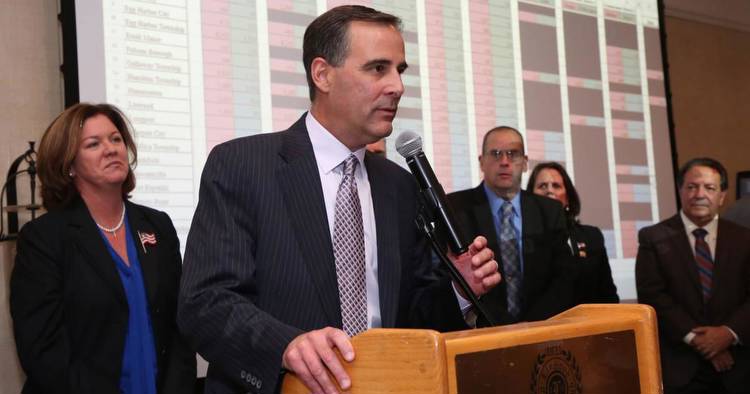Polistina to oppose casino PILOT bill citing OLS report showing loss of tax revenue

The Senate bill to amend the Atlantic City casino payments-in-lieu-of-taxes law will be considered in the Appropriations and Budget committee Monday.
Hours before the hearing was scheduled to start, Senator Vince Polistina, R-Atlantic, expressed his opposition to the new PILOT legislation. He said a Dec. 3 analysis by the Office of Legislative Services showed the a reduction in revenue that could impact Atlantic County tax payers.
Last week state officials said there were no financial analysis available to the public on bills to amend the Atlantic City casino payment-in-lieu-of-taxes legislation.
“The casino operators and Murphy administration made a deal with Atlantic County taxpayers when the original PILOT legislation was enacted and the litigation settled,” said Polistina in a statement on Monday. “The legislation and settlement would result in a $165 million total PILOT for 2021, with $22.275 million going to Atlantic County. Now they want to change the deal to drop the amount going to Atlantic County taxpayers to just $17.55 million, a nearly $5 million decrease. This is completely unfair given the promises made to Atlantic County taxpayers and the many challenges we have in this region.”
The committee meets 1 p.m. in the Statehouse in Trenton.
ATLANTIC CITY — The city will benefit financially if a bill passes to amend casino payments …
The bill, S4007, is sponsored by state Senate President Stephen Sweeney, D-Salem, Gloucester, Cumberland.
It was introduced June 28 and passed out of the Senate Community and Urban Affairs committee last month, but several members and Chairman Sen. Troy Singleton, D-Burlington, said much more information on the bill’s details was needed before they could vote for its final passage on the Senate floor.
An Assembly version was introduced in May by Assemblyman John Armato, D-Atlantic.
Last week, Atlantic City Mayor Marty Small Sr. said the city will benefit financially if S4007 passes, even though sports and internet betting would be removed from the calculations for how much casinos would pay.
Small and his adviser, former Superior Court Judge Steven Perskie, did not provide any financial analysis or budget estimates. The city splits the payment with the county and the city school district.
A bill to remove sports and internet gaming figures from casino payment in lieu of taxes cal…
“At first blush it brings (PILOT) revenues down to $110 million,” Small said of what would be the base PILOT payment for 2022 in the bill. That’s compared with a high of $150 million in 2020.
But the bill offsets any decrease by establishing new pots of money for the city to use for infrastructure and clean and safe streets, Small said. It also guarantees the city will get at least as much as it did this year going forward, with a 2% increase annually, he said.
A Casino Association of New Jersey spokesman said Tuesday night that the amended bill narrows the window on PILOT payments to between $100 million and $120 million, based on only brick-and-mortar casino revenues. But it also provides the full amount casinos pay in investment alternative taxes to the city — which he estimated at up to $60 million.
The full amount of IAT taxes, however, was due to go to the city starting in 2022 under the current legislation.
The amended bill would also continue a $5 million per year, per casino payment to the city for debt relief through 2026. Under the original bill, that $45 million payment would phase out after 2023.
The IAT is a 1.5% tax levied on gross gaming revenues and 2.5% on internet gaming gross revenues. The current law gave casinos the ability to keep some of that revenue if their payments topped pre-PILOT property tax obligations, but that clause was due to end in 2022.
One in a series of interviews with candidates in the Nov. 2 general election, based on edito…
The base PILOT payment of about $150 million in 2020 was based on 2019 revenues. It fell somewhat in 2021 to about $130 million due to the impact of the COVID-19 pandemic on the industry in 2020, but it was less of a drop than expected because of strong internet and sports gaming revenues.

































